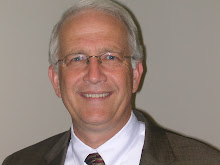1-26-11 Wednesday, 5:25 am Springfield 19 degrees, clear, calm.
Praise God from whom all blessings flow. Praise Him all creatures here below. Praise Him above ye heavenly host. Praise Father, Son, and Holy Ghost. These are the words of the doxology which I said as my feet hit the floor at 4:59. I read recently of someone with low blood pressure who was advised to say the doxology before standing up in the morning. This is a great way to start the day.
Isaiah 12
“Behold, God is my salvation, I will trust and not be afraid; For the Lord God is my strength and song, and He has become my salvation.” (Verse 2) I echo this statement of faith, just as Isaiah proclaimed that his trust and source of strength was God. This was in contrast to faithless Israel which was putting its hopes in neighboring countries and not alone in God. Today I will live out the truth that my strength and salvation comes from God, and nowhere else.
“Therefore you will joyously draw water from the springs of salvation.” (verse 3) This reminds me of Jesus at the well in Samaria conversing with the woman at midday. He asked her for water, and implied that if she asked him he would give her living water so that she would never thirst again. I will be preaching on the passage from John at SunRise UMC in O'Fallon, commemorating the 20th anniversary on the first Sunday in March. As is true of my preaching style, I will apply this truth first to myself, joyously drawing water for my soul from the springs of salvation, rejoicing in God my Savior.
Commenting on the literary form of this chapter Oswalt says “The truths are made the more powerful because they are put in the lyrical language of worship rather than in mere discursive prose. In this way the hearer and the reader are no longer spectators or objects of instruction. Now they are participants involved on the emotional and volitional levels as well as the cognitive one.” I desire to be always a participant and not a spectator, and to lead the people of Wesley deeper into emotional and volitional participation in their faith journeys.
One of my all time favorite quotes is from Theodore Roosevelt’s speech given on April 23, 1910, sometimes titled “To the Man in the Arena”:
It is not the critic who counts; not the man who points out how the strong man stumbles, or where the doer of deeds could have done them better. The credit belongs to the man who is actually in the arena, whose face is marred by dust and sweat and blood; who strives valiantly; who errs, who comes short again and again, because there is no effort without error and shortcoming; but who does actually strive to do the deeds; who knows great enthusiasms, the great devotions; who spends himself in a worthy cause; who at the best knows in the end the triumph of high achievement, and who at the worst, if he fails, at least fails while daring greatly, so that his place shall never be with those cold and timid souls who neither know victory nor defeat.
Guard me Lord from ever being a spectator, a cold and timid soul who knows neither victory nor defeat. May I live this day, trusting in You alone and advancing your kingdom in this generation.
Wednesday, January 26, 2011
Subscribe to:
Post Comments (Atom)

No comments:
Post a Comment